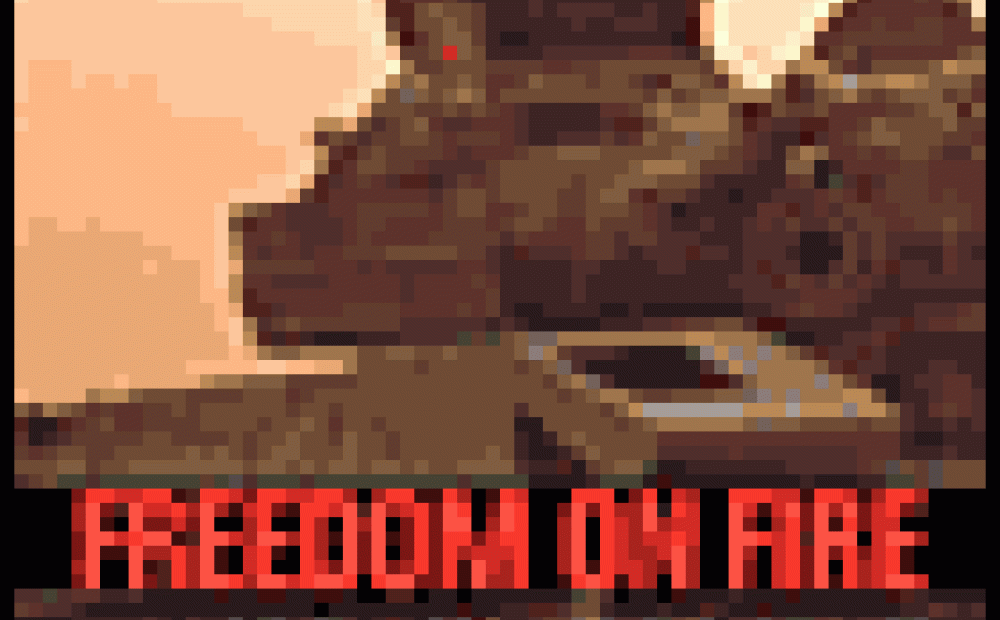<i>Freedom on Fire: Human Rights Wars and America's Response</i>

November 5, 2003
Author John Shattuck of the John F. Kennedy Library Foundation; commentator Tom Gjelten, National Security Correspondent, National Public Radio
John Shattuck was Assistant Secretary of State for Democracy, Human Rights, and Labor from 1993 to 1998 and Ambassador to the Czech Republic from 1998 to 2000. He discussed his experiences at a program sponsored by the Division of United States Studies, drawing on them in order to emphasize the strategic importance to the United States of American intervention to protect human rights abroad.
As Assistant Secretary, Shattuck found himself battling the disinclination of the American government to involve itself in human rights situations. He described what he came to view as the foreign policy syndromes that blocked human rights advances. These included the insistence that no policy change could occur without interagency consensus and the consequent need for strong presidential decision-making to break interagency deadlock. Pres. Clinton, however, initially felt unable to act in the absence of significant public support, which in turn did not exist without strong presidential leadership. When Shattuck took office, the country was in the grip of what he called the Somalia-Vietnam syndrome. After the nightmarish images of American rangers killed and dragged through the streets of Mogadishu were splashed across the media in 1993, Clinton feared the domestic political repercussions from the loss of American lives in any other overseas human rights struggle. He therefore issued Presidential Decision Directive 25 on peacekeeping forces, which severely limited U.S. involvement in human rights crises.
Tragically, the Directive was issued in 1994 just as the Rwanda genocide was taking place. Shattuck considers the single greatest human rights failure of the United States to be its withdrawal from Rwanda at the beginning of the genocide, which culminated in the death of 800,000 people in the space of four months. At the time, both president and country were not only reacting to Somalia but were focused primarily on domestic concerns. Among these were the implications of the president's new policy toward gays in the military, and the struggle over the policy exacerbated the military's resistance to becoming involved in human rights situations. Shattuck's on-the-scene reports from Rwanda, coupled with the aerial evidence that mid-level CIA personnel then realized existed in previously unanalyzed material, enabled Secretary of State Madeline Albright to take proof of the genocide to the United Nations and to involve the U.S. in a multilateral effort. The new doctrine of the use of limited force in human rights crises that evolved was subsequently invoked successfully in Haiti and Kosovo.
Shattuck, a self-described "human rights hawk," is sharply critical of what he views as the war on terrorism's undermining of human rights around the world. The U.S. has tacitly condoned human rights violations by nations we view as allies in that war. The current undermining of civil liberties at home debases the idea of human rights, and the administration's claim that the U.S. is not bound by international law when security is at stake has a negative impact on the very idea of international law. The doctrine of preemptive unilateral war is a signal to other countries that they are also free to invoke it.
The answer to the question of how the U.S. should handle human rights crises, Shattuck believes, lies in a number of strategies. The U.S. must make clear that stopping crimes against humanity before they destabilize nations and regions is a top American priority. It must focus on preventing crises rather than on intervening once crises have been permitted to occur, and it must do so through the use of a multilateral strategy. Before intervening militarily, it must assess specific situations to determine whether there are an on-going genocide, the potential for broad multilateral support for intervention, the likelihood of long-term success, careful planning about the scale and duration of the use of the military, the willingness to demand accountability for human rights violations, and a commitment to the difficult process of reconstruction.
Commentator Tom Gjelten declared that the best thing the Clinton administration did for human rights was appoint Shattuck as assistant secretary. It was Shattuck's willingness to travel to areas of asserted human rights crises and to report back that made his efforts as successful as they were. The struggle for human rights, Gjelten noted, took place in what now appears as a unique period between the end of the Cold War and the rise of al Qaeda. The ethnic strife that occurred during those years and that continues in some areas today, Gjelten insisted, was and is not the result of ancient hatreds but of cynical political manipulation and the failures of nation-states. The existence of international human rights tribunals might itself be viewed as a sign of failure, as such tribunals indicate that the world has permitted major human rights crises to occur. Gjelten agreed with Shattuck in emphasizing the importance of situating human rights policy in a strategic framework, which today includes viewing human rights as a major concern of and a potential weapon in the war against terrorism.
Philippa Strum, Director of U.S. Studies 202-691-4129